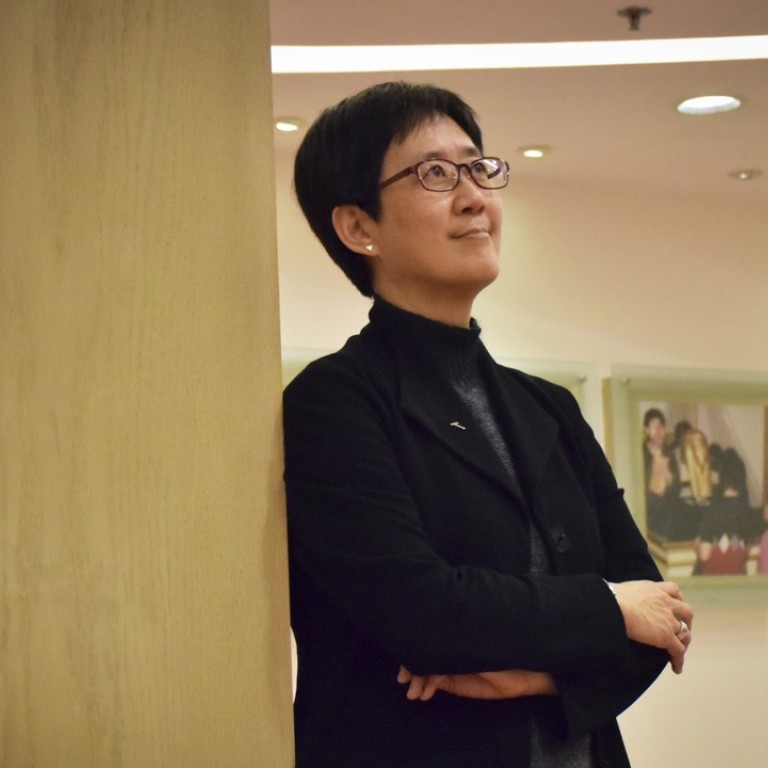
Cantonese opera venues and new West Kowloon centre to coexist peacefully, official says, but union wary
Concerns persist about artistic director’s lack of work experience in genre
Government-run Cantonese opera facilities will complement the Xiqu Centre in West Kowloon but the genre’s flagship union is less upbeat despite its first meeting with the hub’s controversial American director.
“We’ve been in touch for the past two years on collaborating, such as staging some of our events at the Xiqu Centre, which is set to be the best venue in town for the genre,” Yeung said.
‘Father of Hong Kong opera’, 79, laments that he may ‘not live to see an opera house’ at the West Kowloon Cultural District
“Xiqu is not yet in operation. But we do exchange information on future programming, especially major productions, to avoid clashing.”
The centre’s primacy in the scene will not be affected by a new annex at Yau Ma Tei Theatre, which debuted in 1930 and was turned into a Cantonese opera hub in 2012. The cinema has been the venue partner to train young stars for the Chinese Artists Association of Hong Kong, also known as Barwo.
“We are pleased with Barwo, which has nurtured more than 100 young performers over the past five years,” said Heidi Chu Ching-han, the department’s chief manager for venues.
Cantonese opera inspires next generation: art form flourishes in Hong Kong’s schools
“We hope the additional facilities will improve the shortage of space in the existing theatre’s foyer and backstage area.”
Slated to begin in 2021, the upgrade would not affect the enormous demand for venues. But the benefits of the efforts would be significant, according to Barwo chairwoman Liza Wang Ming-chun.
“The new annex will facilitate our training objective as we get better storage and rehearsal space so that we can turn the area into a Cantonese opera training base,” Wang said.
Please leave the Xiqu Centre to us
The 300-seat Yau Ma Tei Theatre, she added, was ideal for training but not professional performances that are deemed too costly to stage.
“We run an academy to train young talents and give them a platform to try out and get ready for their future Xiqu Centre debut,” she explained. “At least that’s our wish.”
Wang, a celebrated actress, insisted Cantonese opera would be best served under the leadership of someone familiar with the genre. Knowledge of Peking opera and being fluent in Mandarin, as new West Kowloon hub artistic director Alison Friedman is, would not suffice, she said.
Wang recalled she met the American director at a working lunch last month and briefed her in Cantonese about the genre in Hong Kong.
“I am sure she is an able and nice person, capable of managing many aspects of West Kowloon, but please leave the Xiqu Centre to us,” Wang said.
Yet the Barwo chairwoman denied her objections amounted to discrimination.
“I think it’s the other way round. We Hong Kong Chinese are being discriminated against by being denied the opportunity to run our own arts.”
Old-school Cantonese opera performer looks at how to keep the art alive in Hong Kong
“It was we the Cantonese opera artists who fought for and won the Xiqu Centre a place in West Kowloon,” she said. “Let’s not forget the original objective.”
But Yeung expressed confidence in Friedman, citing her past and present experience working with her.
“Alison is the person I talk to in mapping out future programming,” she said.
“West Kowloon is branded as an international hub, so I think Alison is suitable for the job with her vision and knowledge of Chinese culture and arts. She did not learn it yesterday.”
The Post has reached out to Friedman for comment.

